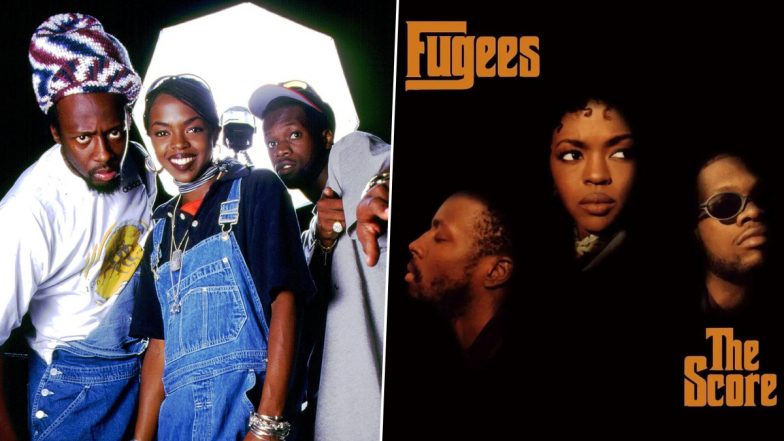
Some things you want to relive over and over again. The first kiss, the first win at the New online casino, or the first hip-hop album that changed your perception of music. It is the latter that we will talk about today.
Yesterday, Sept. 22, Ms. Lauryn Hill, Wyclef Jean, and Pras performed in New York City for the first time as part of a tour celebrating the legendary Grammy-winning album “The Score.” The trio last performed together in 2004 at the Dave Chappelle Block Party.
Ms. Lauryn Hill: “The Fugees have a complicated but impressive history. I didn’t even know it was the 25th anniversary until someone brought it to my attention. We decided to honor this momentous project, its anniversary, and the fans who appreciated the music by creating a peaceful platform where we could come together, perform the music we love, and set an example of reconciliation to the world.” This summer, Lauryn delighted fans with a very rare guest rap on the Nas album.
Wyclef Jean: “My first memory of those years was that we vowed from the beginning that we weren’t just going to make music, we were going to be a movement. We would be the voice of the people, and in these difficult times, I thank God once again for bringing us together.”
The list of cities and countries includes Nigeria, Ghana, England, France and, of course, the United States.
How Did It Start?
Fugees started with the meeting of New Jersey high school students Prakazrel Michel and Lauryn Hill in 1987. United by their love of music, they formed the band Tranzlator Crew. By the way, Lauryn Hill was only 13 years old at the time, but she had already participated in a church choir. Soon Wyclef Jean, Praz’s cousin, joined them. The band began to work hard, recording several demos by 1993, with which they went around the record label offices. And for good reason, after a long search, they got lucky at the Ruffhouse label, a division of the big company Columbia.
The band succeeded in everything, both in performing music in various styles and in writing lyrics that abounded in wordplay and deep meaning. And the meaning was very important for them – even the name of the band (Fugees, short for refugees, emigrants) reflected the direction of their creativity and the problems they were concerned with. By the way, both Praz and Wyclef were born in Haiti, where Wyclef’s father made his career, which may be why his son was able to move to the USA. However, his father did not recognize his son’s creative interests, and he did not show up at a Wyclef concert until Wyclef achieved world fame.
“Blunted on Reality” is the band’s debut album, released in 1994. And at once the band was the talk of the town, though world fame was yet to come. The band differed not only by the music and the quality of the lyrics but also by their approach to life and creativity. Unlike many representatives of Caribbean music, they declared that they did not need to smoke marijuana in order to reach a different level of perception or relaxation. The trio promoted a healthy lifestyle and sang about the problems of their people and the political situation in Haiti. The Fugees tried to solve these problems not only with words but also with deeds – by investing money in building schools and roads in Haiti.
After two years of work, the band released their second LP, The Score, which revealed the musicians’ potential. It was no longer just hip-hop, but a colorful musical palette that blended all the styles commonly referred to as “black” music. The hits of the record were the tracks “Ready Or Not”, as well as two covers of “No Woman No Cry” (Bob Marley) and the rhythm and blues “Killing Me Softly” (Roberta Flack) performed by Lauryn Hill. By the way, the motive for “Ready Or Not” was borrowed by the Irish singer Enya. The tune, of course, was thoroughly reworked, but Enya was still offended because she wasn’t even mentioned on the album.
These tracks weren’t the only noteworthy recordings on the album. The jazz reggae “The Mask” and the soft, harmonic “Fu-Gee-La” also added to the band’s listener appreciation and love. The love was reinforced by sales (six and a half million copies in the U.S. alone) and a 1996 Grammy Award for “best rap album” and “best duo/group R&B single with vocals” (“Killing Me Softly”). The band itself compared “The Score” to the album “Tommy” by the rock band The Who and called it “audiophile.” The similarity was, of course, not in terms of music, but in terms of concept, that is, all the tracks of “The Score” are connected by a common theme and are listened to as a whole, despite the variety of the sound.
A large-scale world tour followed, with the final concert in the Haitian city of Port-au-Prince in April 1997, which drew an audience of 80,000. It was a charity event, all the proceeds of which went to the fund of assistance to Haitian refugees, artists, and starving children. But they never made it to the fund, so they simply disappeared. The most logical version is that it ended up in the pockets of local officials.
In the second half of 1997 due to the pregnancy of Lauryn Hill, the band suspended their creative activity. At the same time, conflicts began to arise in the team, and each member went more and more into solo work.
Solo Works of Band Members
Wyclef Jean
Wyclef Jean Presents the Carnival Featuring the Refugee All-Stars, his first solo album, was released in 1998. The album was not an imitation of the Fugees style, and it would be strange to expect it from such a musician. But undoubtedly, the album developed some of the components of the Fugees’ style – towards a greater rapprochement with Haitian and Cuban music. The album featured Cuban singer Celia Cruz, with whom Wyclef recorded a great song “Guantanamera”, and Lauryn Hill, whose inimitable vocals can be heard on four tracks of the record.
But Wyclef didn’t stop there and invited the New York Philharmonic to take part in the recording of the main hit of the record “Gone Till November”, which was, to say the least, unusual for a rap artist. Wyclef Jean continued his collaborations with various musicians on his second album “The Ecleftic: 2 Sides II a Book” in 2000, which featured African singer Youssou N’Dour, 70s rock band Earth, Wind & Fire, jazz trumpeter Kenny Rogers. All this diversity of styles and musicians only enriched Wyclef’s work, opening up new sides of his interests and talent.
After the second album, Wyclef diversified his activities by becoming a producer as well. In this case, this side of the musician’s creativity only confirmed the talent of Wyclef – among his many clients were such as Mick Jagger and Michael Jackson. But a man is not a machine and can’t have time for everything. The production activity affected his third album “Masquerade”, released in 2002. No, the album wasn’t a failure, and it didn’t bring down Gene’s achievements as a musician, it just wasn’t another breakthrough, remaining a quality work within the already created style.
After “Masquerade” Clef was invited to J Records, a label with a long list of famous artists. The result of his work on this label was the album “Preacher’s Son” (2003). It was exactly the kind of creation everyone was expecting from Wyclef. The album has a very good selection of hits: “Industry”, devoted to the not so good relations inside the rap industry, clubbed “Party to Damascus” with Missy Elliott, rousing “Three Nights in Rio” with Carlos Santana, tuneful “I Am Your Doctor”, painful for the destiny of its people “Rebel Music”. As a result, the album was noticed not only by music lovers and music critics but also by the political media, which accused Clef of “subversive work” for the change of power in Haiti.
Having dealt with the media, Clef proceeded to the next album, which was released in 2004. The album continued the tradition of its predecessor, both musically and thematically, as its title, Welcome to Haiti: Creole 101, makes it easy to guess.
What About Lauryn?
After the birth of the child, named Zion David (his father was none other than Rohan Marley, one of the sons of the famous Bob Marley), Lauren realized that the band de facto broke up, Wyclef and Praz were already busy with their solo careers. It didn’t take long for Laurin, either, to release the album Miseducation of Laurin Hill in 1998. The album was a reflection of the singer’s life, she was both creating the material and producing it, showing her maternal feelings and creative thoughts in it. Such a mix was enjoyed by all. The album was nominated for 10 (!) Grammy Awards and won 5 of them.
However, this was followed by a lull. It was interrupted by the “MTV Unplugged No. 2.0” live album published in 2002. It was not until 2007 that the long-awaited “Ms. Hill, which reflects the changes in the life of this great singer over the years.
Praz Michael
The third member of the band, Praz Michael, released only the single “Ghetto Supastar”, which was very successful, but an album, despite all expectations, never followed.
In the Conclusion
This band, despite its short history, gave the world not only three talented musicians but changed the face of rap forever. It didn’t keep up with its contemporaries and didn’t promote the traditions of rap of the ‘80s, but created its traditions. It should be said that it was in the Fugees that the dream of the founder of Haitian rap Master Dji was largely realized – the style became world-famous.

